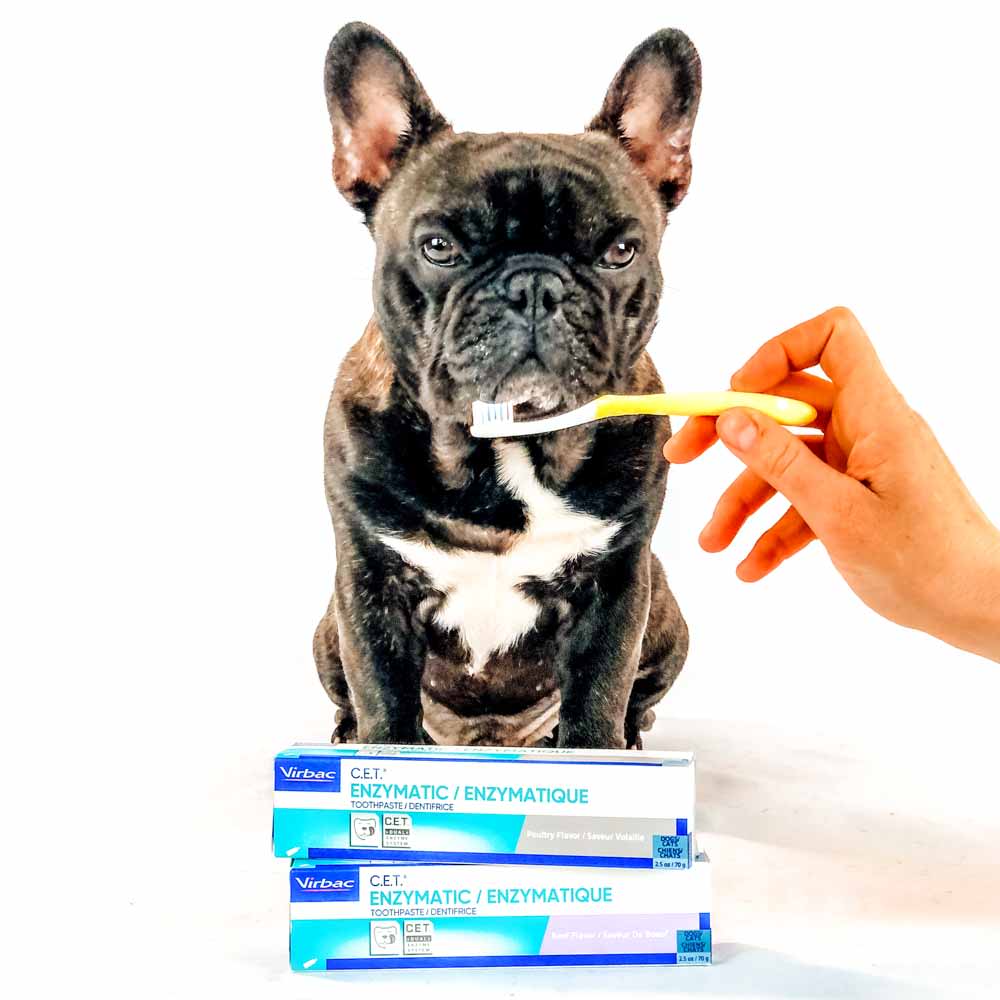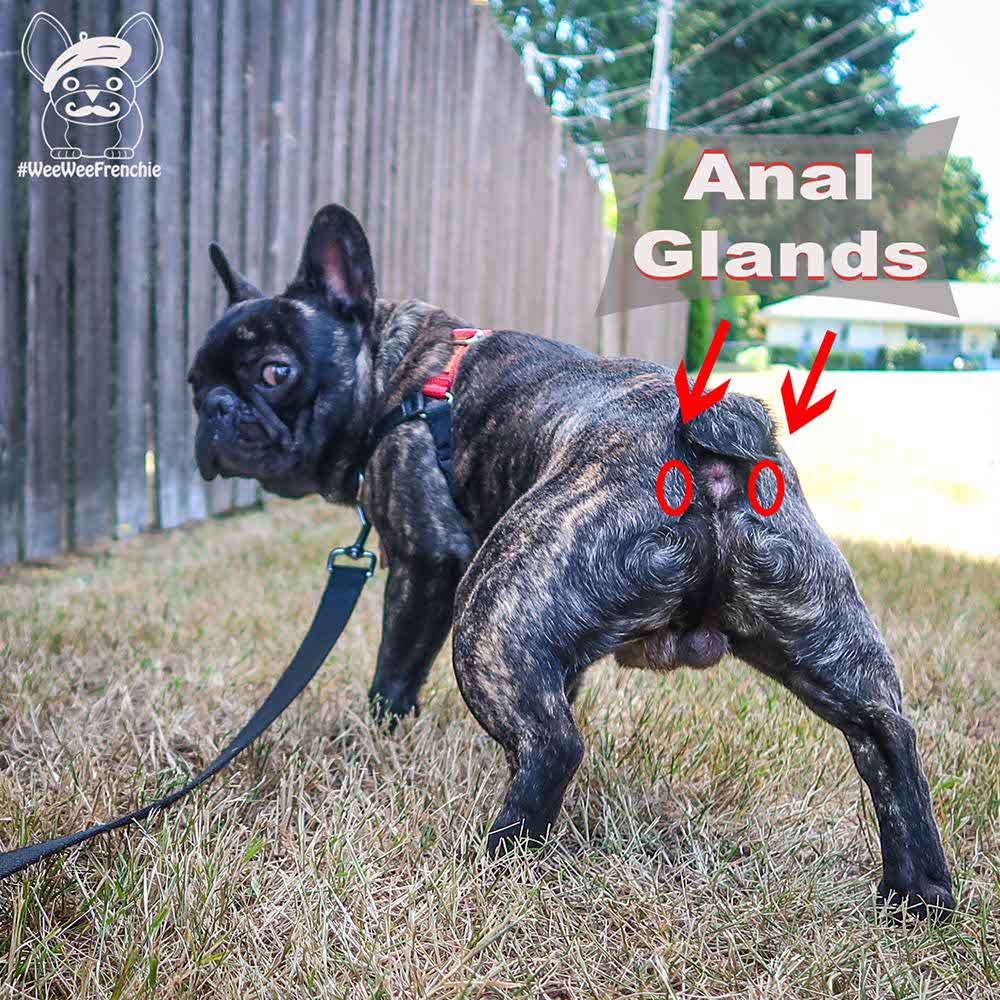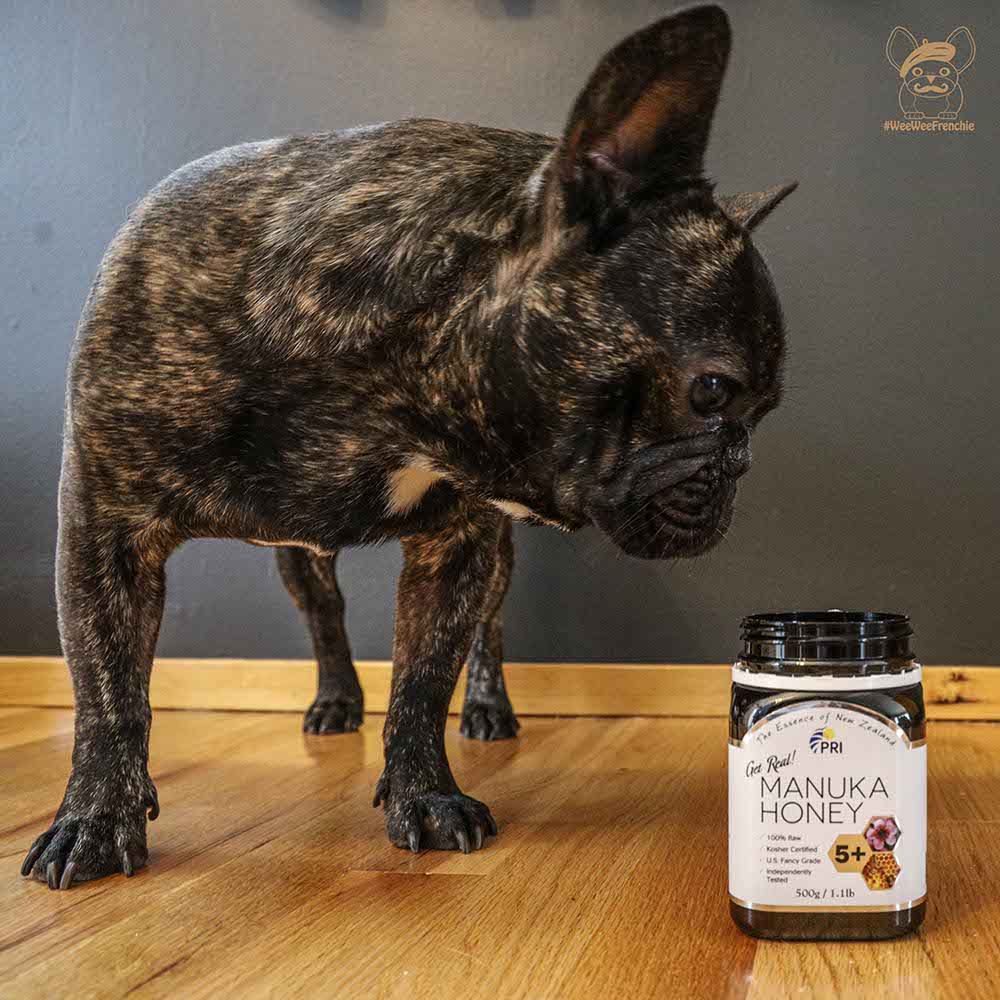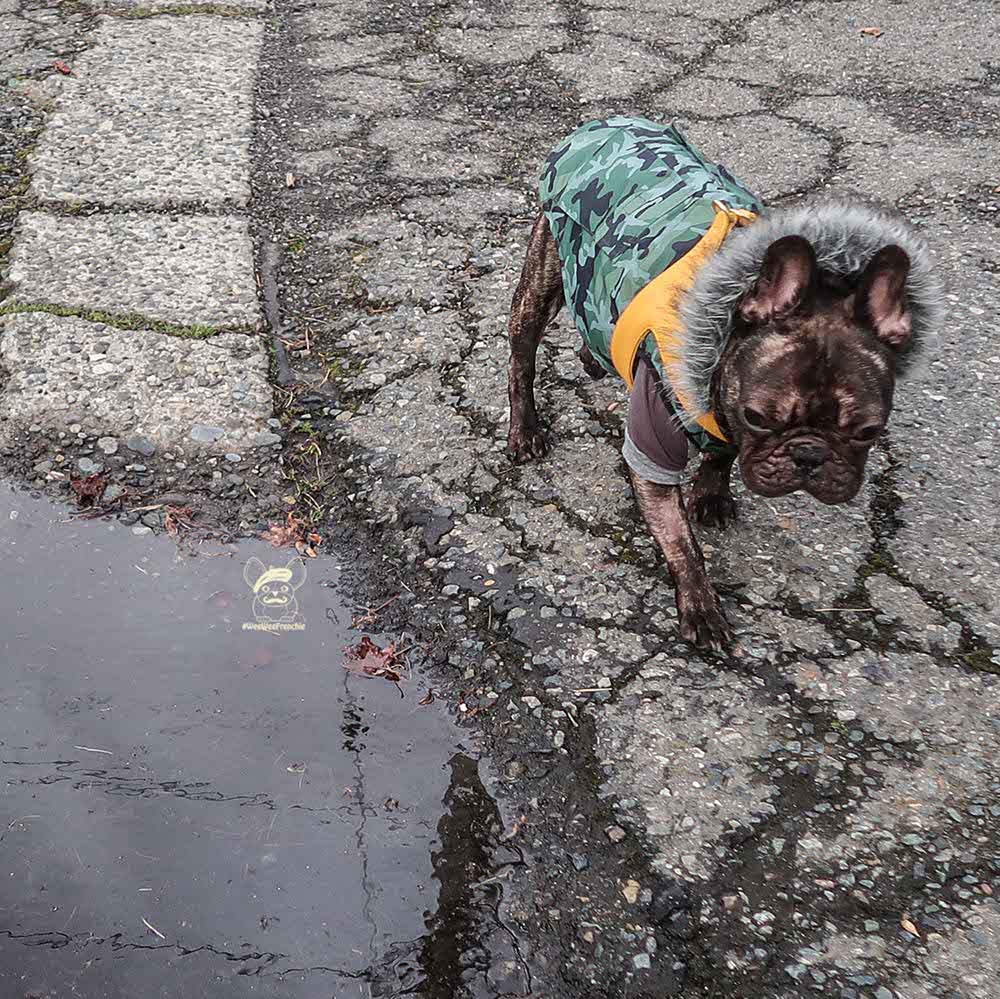How to Prevent Overheating in Your Frenchie
What you need to know to keep your dog cool on hot summer days.
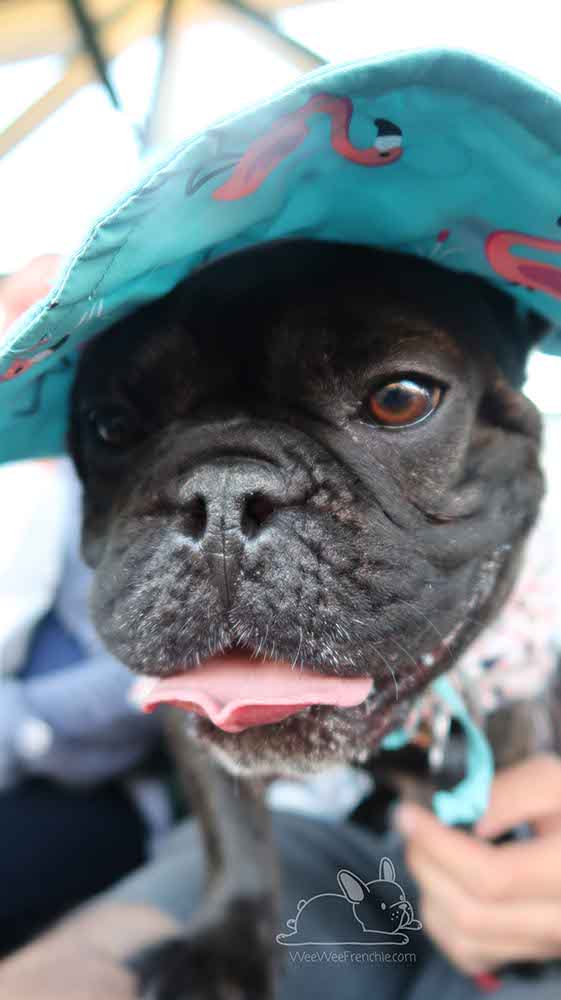
While the summer months are packed with family events like barbecues, baseball games, water activities, and farmer’s markets, it only seems natural to include your dog. However, warmer temperatures means that owners need to be cautious of outdoor activities that could make it easy for your dog to overheat. Whether you are new to Frenchie ownership or need a friendly reminder, here is what you need to know.
Humans have many sweat glands all over the body so that when our temperature rises, blood vessels dilate allowing heat to escape to the skin surface. Sweat evaporates off the skin that creates a cooling effect, which enables you to adapt and handle hotter temperatures for longer periods of time. However, in comparison to a Frenchie, they have limited ability to adapt to warmer temperatures.
Dogs have fewer sweat glands than humans, which are largely located in the foot pads. Given this, dogs pant when they are hot, which allows for air circulation and moisture to evaporate from wet surfaces like their tongue, nose, and airway. This process creates a cooling effect; however, given that Frenchies have shorter snouts and narrower airways, this limits their ability to cool down as effectively as a canine with a longer snout. Their shorter legs also puts their bodies closer to the ground, allowing for accelerated heating of their core body temperature as heat radiates off of asphalt or concrete.
What do you need to know for warmer days:
1. Limit time outside during warmer days, especially when 80°F or greater. Also, be cautious of days when it may not seem hot but is very muggy, which can also limit the dog’s ability to cool down.
2. Never leave your dog unattended outside, and if you see your dog panting, make sure you are taking steps to cool them off; seek shade, have water available for drinking, and limit exercise to cooler hours of morning and evening.
3. If your dog is getting sluggish, act promptly, and use water to cool off your pup! Make sure to pour cool water (not ice water) on their bellies, feet, and heads. If you can get your dog to drink water, this will help to prevent dehydration.
4. If your dog is not cooling down with water, then seek veterinary attention immediately! Do not waste time since the longer a dog’s core temperature stays elevated, the greater the risk of long-term damage or death!
From personal experience, Cooper pants when outside but I know he is overheating when he seeks shade, followed by somersaults and laying on his belly. When this happens, I limit his activity, which may mean that I carry him home so that he can cool down. Even on days when the temperature is only 70°F - 75°F, Cooper may begin experiencing signs of overheating within 10-15 minutes. My rule of thumb is if I am starting to sweat on our walks, then Cooper has to be hot! Also, because of his black fur, he seems to heat up faster due to sun absorption (versus if he had lighter fur, which would reflect the sunlight better). We have started to use toddler floppy hats on Cooper to create shade when outside, as well as using a toddler 100% cotton white tank to cover his darker fur and decrease sun absorption. When at home, we also use gel cooling mats, which helps to keep Cooper cool. Although we have no medical studies to back up our own experience, it seems that it helps to keep Cooper cool when we have brought him along with us for outdoor events on warmer days.
Always stay vigilant to the signs or mannerisms that your dog displays when it is warmer outside. If they act like they are overheating, then they probably are. Make sure to take immediate steps to cool down your Frenchie because they have limited ability to self-regulate their own body temperature. Be sure to visit Frenchie Bulldog Rescue for more information about overheating in Frenchies.
Be vigilant, take action quickly, and keep our Frenchies safe!

